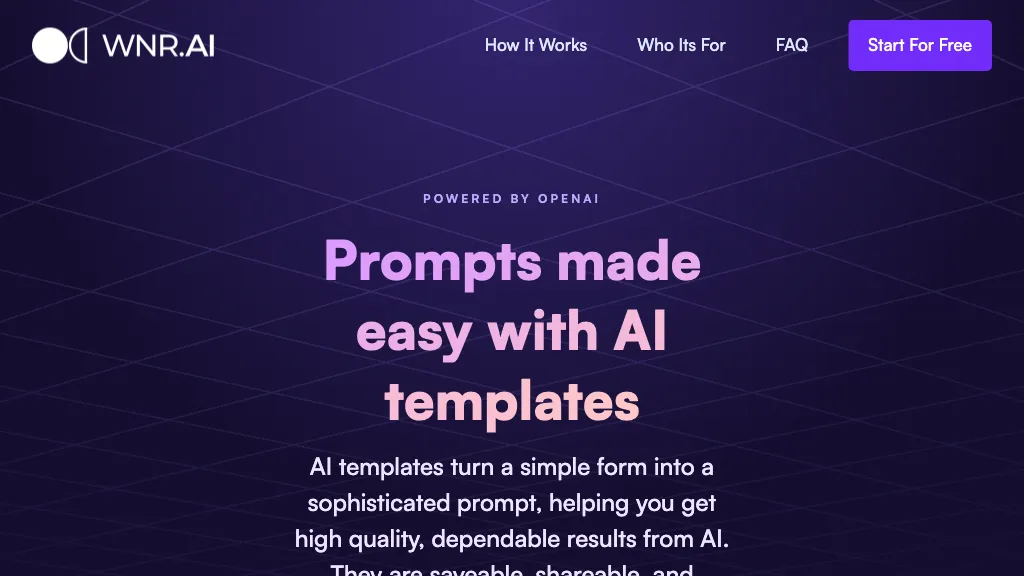Text & Writing
AI Assistant
AI chatbots
AI Detection
Blogging platforms
Books
Chat
Chatbots
Chatgpt
ChatGPT Prompts
Content Creation
Copywriting
Email
Email Assistant
Email clients
General Writing
Messaging apps
Note and writing apps
Paraphraser
Prompt Guides
Prompts
Prompts Guides
Speech-To-Text
Stories
Story Teller
Summarizer
Translation
Wordpress
Writing
Image & Design
AI generative art
Art
Art Generation
Avatar
Avatar generators
Avatars
Design
Design Assistant
Design inspiration websites
Design mockups
Design resources
Graphic design tools
Icon sets
Image editing
Image Generation
Image Generator
Images
Images Scanning
Inspiration
Interface design tools
Logo generator
Mobile editing apps
Notion Templates
Photo editing
Photo sharing
Profile Pictures
Stock photo sites
Text-to-Image
UI frameworks
Wallpapers
Audio & Music
Video & Animation
Marketing & Sales
Advertising
Affiliate marketing
AI Search Engines
Branding
E-commerce
Ecommerce platforms
Email marketing
Interior Design
Marketing
Marketing automation platforms
Marketplace sites
Real Estate
Sales
Search
Search Engine
SEO
SEO analysis tools
Shopify Apps
Shopping
Social audio apps
Social Media
Social Media Assistant
Social media management tools
Social Networking
Lifestyle & Entertainment
Development & IT
Business & Admin
Accounting software
Aggregators
AI
App switcher
Business
Business intelligence software
Calendar apps
Chrome Extensions
Community management
CRM software
Crypto
Crypto tools
Customer Service
Customer support
DAOs
Data analysis
Data analysis tools
Data visualization tools
Digital whiteboards
Document Search
File storage and sharing
Finance
Financial planning
Investing
Investment
Keyword research tools
Knowledge base software
Lead generation software
Legal
Legal Assistant
Legal services
Medical
Meeting assistant
Meeting software
Name Generator
Presentation Software
Presentations
Productivity
Professional networking platforms
Project management
Project management software
Scheduling software
Slack apps
Startup
Startup communities
Startup financial planning
Startup tools
Stocks
Survey and form builders
Trading
WNR
WNR.ai (short for What's New in Research) is an AI-powered research assistant that helps users stay up-to-date with the latest scientific publications and research papers across various fields. It uses natural language processing and machine learning to analyze and summarize research papers, making it easier for users to quickly grasp the key findings, methodologies, and implications of the latest studies.
WNR.ai is an AI-powered research assistant that helps users stay informed about the latest scientific publications and research papers across various fields, saving time and facilitating knowledge sharing and collaboration.

Pricing
- Free basic plan with limited features
- Paid premium plans with additional features and customization options
- Pricing typically based on the number of users or organization size
Pros
- Saves time by providing concise summaries of research papers
- Covers a wide range of scientific disciplines and fields
- Personalizes recommendations based on user preferences and interests
- Allows users to track specific topics and receive alerts for new relevant research
- Facilitates knowledge sharing and collaboration among researchers and professionals
Cons
- Relies on the accuracy and quality of the underlying research papers
- Summaries may not capture all the nuances and details of the original research
- Limited to research papers available in the database
- Potential for misinterpretation or oversimplification of complex studies
Use Cases
- Keeping up with the latest research in specific fields or topics
- Identifying emerging trends and hot topics in scientific research
- Facilitating literature reviews and meta-analyses
- Supporting evidence-based decision-making and policy development
- Enabling knowledge sharing and collaboration among researchers and professionals
Target Market
- Researchers and academics in various scientific disciplines
- Research and development teams in industries like pharmaceuticals, biotechnology, and technology
- Policymakers and government agencies involved in science-based decision-making
- Professionals and practitioners in fields that rely on scientific research (e.g., healthcare, engineering, environmental science)
Competitors
- Semantic Scholar
- Meta
- Elsevier's ScienceDirect
- ResearchGate
- Google Scholar
Copyright © Product Cards 2023
